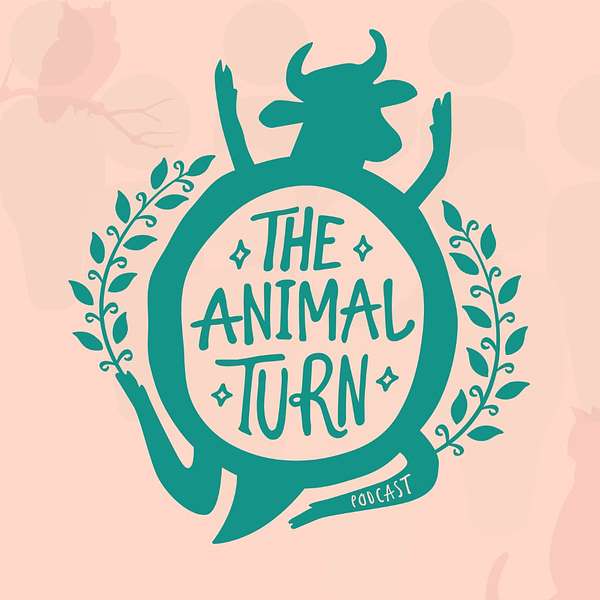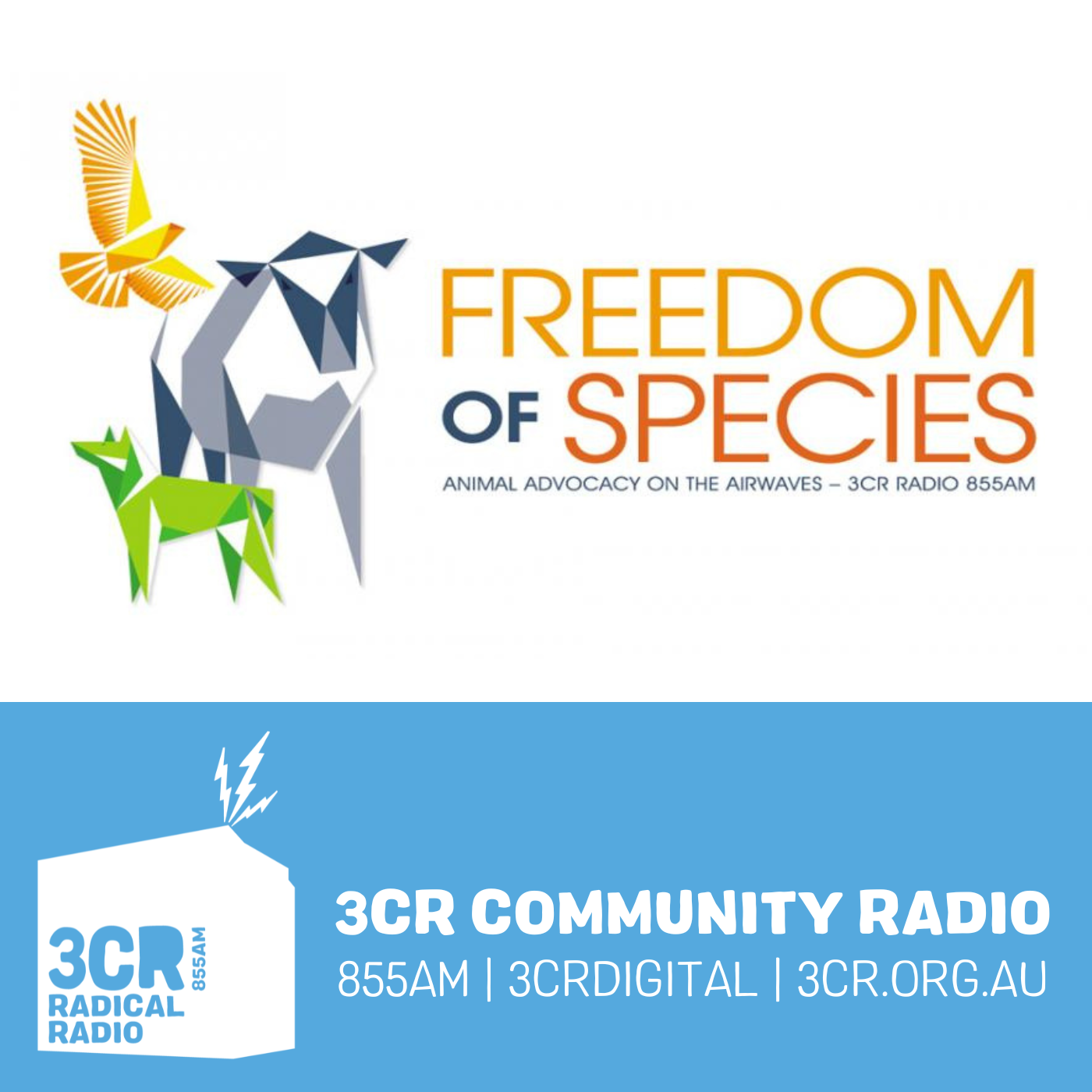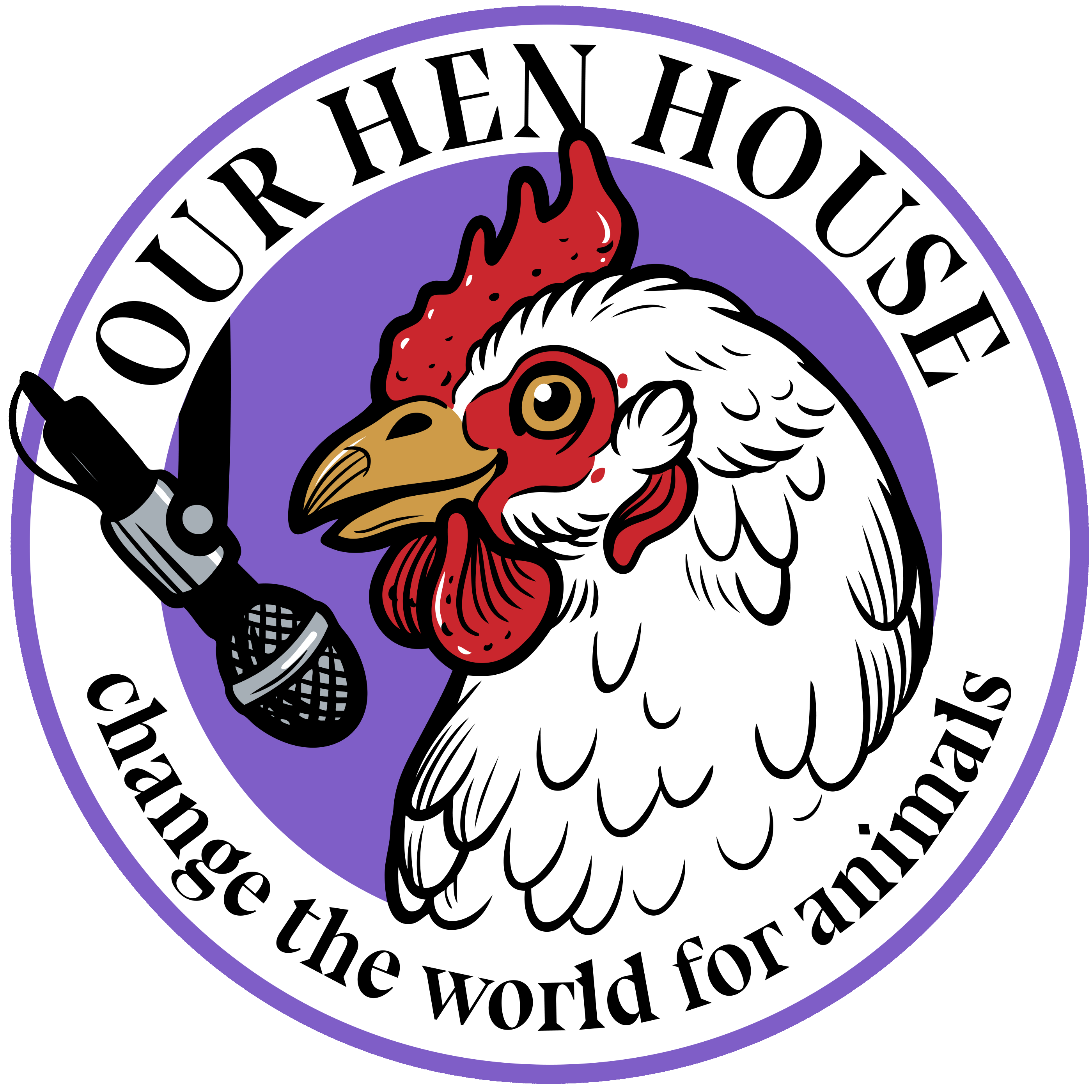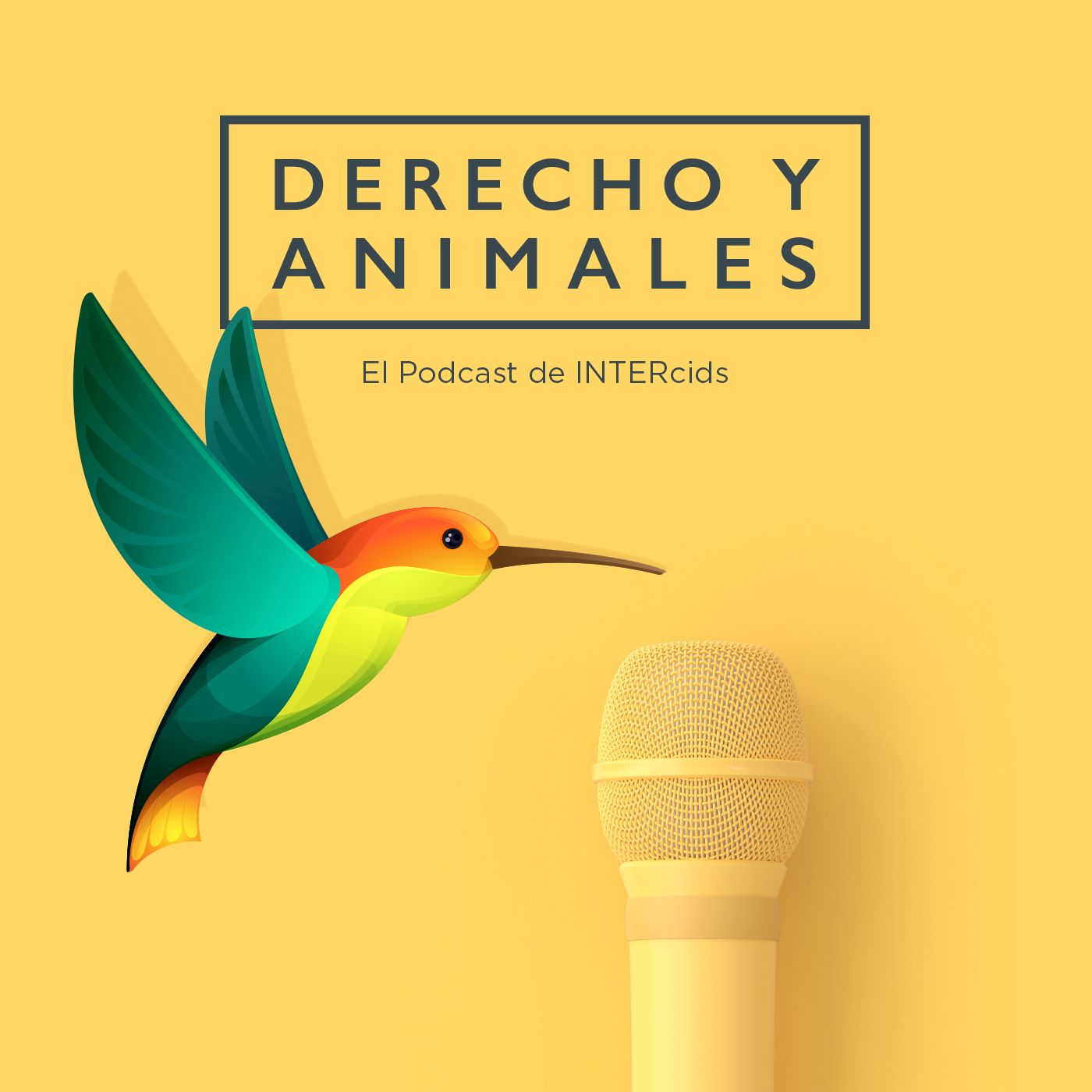
The Animal Turn
Animals are increasingly at the forefront of research questions – Not as shadows to human stories, or as beings we want to understand biologically, or for purely our benefit – but as beings who have histories, stories, and geographies of their own. Each season is set around themes with each episode unpacking a particular animal turn concept and its significance therein. Join Claudia Hirtenfelder as she delves into some of the most important ideas emerging out of this recent turn in scholarship, thinking, and being.
The Animal Turn
S6E9: International Relations with Andrea Schapper
Use Left/Right to seek, Home/End to jump to start or end. Hold shift to jump forward or backward.
Claudia talks to Andrea Schapper about animals and international relations with an explicit focus on the United Nations. They discuss how animal rights are absent in the Sustainable Development Goals as well as the promise of the rights of nature framework being employed in Latin America.
Date Recorded: 5 December 2023
Andrea Schapper is a Professor in International Politics at the University of Stirling. In September and October 2022, she was a Guest Scholar at the Raoul Wallenberg Institute for Human Rights & Humanitarian Law in Lund, Sweden. She also held a Senior Fellowship at the Berlin-Potsdam Research Group 'The International Rule of Law - Rise or Decline' in October 2020 and was Fellow at the Centre for Global Cooperation Research at the University of Duisburg-Essen in Germany for several months in 2016 and 2017. Prior to joining the University of Stirling in 2015, she was a Lecturer in International Relations at the Technische Universität Darmstadt in Germany (2012-2015). Her PhD is from the Bremen International Graduate School of Social Sciences (Universität Bremen, 2011) and she has previously studied at Cornell University (USA), Leibniz Universität Hannover (Germany) and the United Nations Office at Geneva (United Nations Graduate Study Program, Switzerland). Andrea has worked for international organizations, like the International Labour Organization (ILO in Geneva, Switzerland), and non-governmental organizations, such as the National Domestic Workers' Movement (India) or the Friedrich-Ebert-Foundation (Zambia). She has conducted field research in Bangladesh, India, Ethiopia and Zambia. Andrea’s research focuses on environmental justice and on new developments at the intersection of human rights and the environment, including new forms of institutional interactions and actor constellations fostering links between the two policy fields. She also has a strong interest in rights of nature and animal rights. Connect with Andrea via email (andrea.schapper@stir.ac.uk).
Featured:
- Transforming our world? Strengthening animal rights and animal welfare at the United Nations by Andrea Schapper and Cebuan Bliss
- The 18th Sustainable Development Goal by Ingrid J. Visseren-Hamakers
- Universal Declaration of Mother Earth by the Global Alliance for the Rights of Nature (GARN)
Animals in Politics, Law, and Ethics researches how we live in interspecies societies and polities.
iROAR Network
iROAR brings together podcasts that aim is to make the world a better place for animals.
Disclaimer: This post contains affiliate links. If you make a purchase, I may receive a commission at no extra cost to you.
The Animal Turn is hosted and produced by Claudia Hirtenfelder and is part of the iROAR Network. Learn more on our website.
- Leave a Review on Podchaser
- Check out The Animal Turn Merch.
- Support us on Patreon, Buy Me a Coffee, and Buzzsprout.
00:00 - Introduction
- Apologies for the irregular release schedule – Christiaan and I are going to restructure things.
- 9th episode of season 6 focusing on Animals and Politics.
- Politics comes up at a range of different scales.
- Going to be talking about international relations
- Andrea Schapper is a Professor in International Politics at the University of Stirling. In September and October 2022, she was a Guest Scholar at the Raoul Wallenberg Institute for Human Rights & Humanitarian Law in Lund, Sweden. She also held a Senior Fellowship at the Berlin-Potsdam Research Group 'The International Rule of Law - Rise or Decline' in October 2020 and was Fellow at the Centre for Global Cooperation Research at the University of Duisburg-Essen in Germany for several months in 2016 and 2017. Prior to joining the University of Stirling in 2015, she was a Lecturer in International Relations at the Technische Universität Darmstadt in Germany (2012-2015). Her PhD is from the Bremen International Graduate School of Social Sciences (Universität Bremen, 2011) and she has previously studied at Cornell University (USA), Leibniz Universität Hannover (Germany) and the United Nations Office at Geneva (United Nations Graduate Study Program, Switzerland). Andrea has worked for international organizations, like the International Labour Organization (ILO in Geneva, Switzerland), and non-governmental organizations, such as the National Domestic Workers' Movement (India) or the Friedrich-Ebert-Foundation (Zambia). She has conducted field research in Bangladesh, India, Ethiopia and Zambia. Andrea’s research focuses on environmental justice and on new developments at the intersection of human rights and the environment, including new forms of institutional interactions and actor constellations fostering links between the two policy fields. She also has a strong interest in rights of nature and animal rights. Connect with Andrea via email (andrea.schapper@stir.ac.uk).
- Transforming our world? Strengthening animal rights and animal welfare at the United Nations by Andrea Schapper and Cebuan Bliss
03:58 - A bit about Andrea
- Started thinking about international relations early on in her studies.
- Interested in questions of cooperation and conflict.
- Animals came into the frame fairly late. Her initial interest was in human rights and children’s rights.
08:05 – Human Rights and Environmental Challenges
- In Bangladesh she realised that rights can sometimes not be met due to environmental demands. Such as in Bangladesh, “the challenges that local communities face because of climate change are tremendous” – Andrea.
- “There is a strong connection between environmental challenges and human rights” – Andrea.
- What we do to protect nature is not enough and its relationship with humans needs to be re-defined. We need animal rights and rights of nature.
- Working from an interdisciplinary perspective compelled her to think more radically.
- There is more rhetoric to protect nature and the environment but what we see in practice is not radical enough to “live in harmony with nature” (a phrase often used at the UN).
11:05 – What is International Relations?
- Classic term means “between nations”. This was the original meaning, but the discipline has changed they are about much more than nations. They include other actors – like Multinational Organizations.
- This is an old terms and it does not reflect what we mean – a more adequate term would be “global politics” so as to better reflect all of the actors who try to impact international politics.
- Politics, policies, and agreements made at the international level that then trickle down to the national and municipal level
13:50 – Animal Rights and the United Nations
- Very little been done to actively include animals at the international level. It has mainly focused on animal welfare but does not offer “a radical rethinking” of how humans and animals relate.
- There are some attempts at the United Nations to protect animal welfare but not animal rights.
- A Declaration is not legally binding – it is just an agreement – and not even that (a declaration for animal rights) was agreed upon at the United Nations.
- Animal welfare works to improve the conditions under which we use animals.
- There is no organization at the UN level that is explicitly there to protect animal welfare, health ,or rights.
- UNEP in 2022 is attempting to look more at the relationship between humans, animals, and the environment.
- Such an institution needs to be brought together so that states can be brought together to discuss (a forum) and it needs to be an actor that protects animal rights and welfare.
20:25 – Animal Rights and the Sustainable Development Goals
- Suggested that a lack of consideration of animal rights in the SDGs is a hinderance to achieving those objectives.
- Animals only included in two of the 17 goals – Goal 14 “Life Below Water” and Goal 15 “Life on Land”
- Goals can often conflict with one another and the SDGs that are more anthropocentric are privileged.
- For example, if you look at some renewable energy projects – like Hydro resources and green economy strategies – it might have large economic benefits but locally people, animals, and the environment negatively feel the impacts of these projects.
- Goals that are meant to protect biodiversity are often neglected in favour of those that work toward economic development – this negatively impacts animals.
- “The SDGs in the end are mainly anthropocentric goals” – Andrea.
- “It felt as though sustainability became a euphemism for making money in a more palatable way” – Claudia
- We continue to reproduce inequalities, there has not been transformative change.
27:05 – Compounding Conflicts and Consultations
- Large areas of delicate environments are being used as solar farms.
- We focus on large scale projects where smaller community projects would be more sustainable as you would have a better understanding of the adverse effects.
- Need to consider the environment as an actor – it needs to be represented by scientific experts and legal guardians.
- Tensions between developed and developing countries.
- Conflicts between the government, environment and society need to be taken seriously.
- All affected actors need to participate and have a say.
- Need to maybe reconfigure what we mean by development.
33:54 – Including animals in International Relations
- Make four suggestions on how animal rights can be strengthened in the UN and the UN Sustainability Agenda:
- Create a new UN organization which is a forum and an actor for animal protection and rights.
- Include a new Sustainable Development Goal – Goal 18 (suggestion by Ingrid J. Visseren-Hamakers, The 18th Sustainable Development Goal )
- Integrate animal rights and rights of nature legislation at the level of the United Nations. Rights of Nature is much more advanced.
- Have Procedure Rights with the Environment
- Some countries are taking the lead when it comes to thinking about the rights of nature (Ecuador and Bolivia).
37:20 – Rights of Nature
- UN recognise the need for harmony with nature.
- In Latin America they take the Rights of Nature really seriously, it is included in some countries constitutions. If you have a legal instrument and it is taken seriously you can stop harmful projects.
- Other countries need to go down this path – having courts protecting nature and animals. It leads to awareness raising, these court decisions are widely discussed.
- When there is political will it is amazing what can happen.
40:15 – International Architecture
- The UN is only one organization in the international landscape.
- World Bank is part of the UN system, but they have a lot of power because they have loan conditions. If animal rights were mainstreamed into their agenda, there would be many implications.
- Regional Organizations also offer lots of potential.
- In the EU there is a lot of development in term of animal welfare but not animal rights. Ethically speaking, the EU is not following an animal rights approach. No radical ideas.
- Gary Francione on The Animal Turn said when you are talking “how to use animals well” you are undermining animal rights.
- The fact that animals move across boundaries also points to the need for international relations.
- Important to have regional blocs discussing animal transboundary movement.
- Regional organizations main purpose is often economic integration which might also be why they don’t discuss these other more political regulations.
- UN is a bit different because it is not only focused on economics. So this offers a unique opportunity for radical ideas.
47:35 – One Health and the World Health Organization
- Talking about animals is making an appearance with the World Health Organization
- One Health is mainly pushed by the fear of zoonotic diseases – remains anthropocentric.
- Animals are explicitly mentioned but perhaps only instrumentally.
49:25 – Quote
- An operative clause from the Universal Declaration Rights of Mother Earth
- “Just as human beings have human rights, all other beings also have rights […]” This is taken from the Universal Declaration of the Rights of Mother Earth.
- “Just as human beings have human rights, all other beings also have rights”
- The quote is talking about new forms of rights and if we consider that all beings have rights that would transform our relationships with nature and animals. We need to redefine these relationships.
- Recognise rights can lead to different decisions and policies.
- “The language of rights can be quite strong and quite transformative” – Andrea
- Mobilizing these ideas allows your imagination to work differently. Have to do some of that work of figuring out what those future policies look like.
- Long way from the Universal Declaration of Human Rights to thinking about collective, environmental rights. The right to a healthy environment was only recognised in 2022. Rights are shaped by the challenges that we face in the world.
54:58 – Currently working on
- Working on rights of nature and animal rights – try to further develop procedure rights. Working with environmental scientists.
- Working on how rights can be strengthened in environmental agreements.
- Get in touch via email (andrea.schapper@stir.ac.uk).
56:40 – Animal Highlight (Red Kites)
- Red Kites come up in Virgina’s research.
- Red Kites re-introduction into Britain and now being translocated back to Spain.
- Red Kites are large, distinctive birds of prey. They are a charismatic megafauna.
- Historically they were classified vermin in Britain and this led to persecution.
- By 1900s they had been wiped out in England and Scotland so in 1903 measures to protect them were put in place.
- International cooperation was required to help conserve the species.
- Need to consider species at the global level.
- Shift from species to individual needs to think about how individuals are respected in translocation discussions.
- Mortality rates can be high in translocation activities.
- Carl Safina talking about animal cultures on The Animal Turn
- Translocation can be dislocating in terms of animal cultures.
- Talking about individuals can make discussing species conservation much messier.
01:15:23 - Credits
- Thank you to Animals in Philosophy, Politics, Law and Ethics (A.P.P.L.E) for sponsoring this podcast; Gordon Clarke (Instagram: @_con_sol_) for the bed music, Jeremy John for the logo, Virginia Thomas for the Animal Highlight, and Rebecca Shen for her design and social media work. This episode was edited by Christiaan Mentz and produced by the host Claudia Towne Hirtenfelder.
Show notes compiled by Claudia Hirtenfelder
Podcasts we love
Check out these other fine podcasts recommended by us, not an algorithm.

The Animal Highlight
Claudia Hirtenfelder
Knowing Animals
Josh Milburn
Species Unite
Species Unite
The Deal with Animals with Marika S. Bell
Marika S. Bell
The Other Animals
Laurent Levy
Beyond Species
Beyond Species
The Anthrozoology Podcast
Anthrozoology Podcast
Freedom of Species
The Freedom of Species Team
Our Hen House: Vegan & Animal Rights Movement | Stories from the Frontlines of Animal Liberation
Jasmin Singer and Mariann Sullivan
Derecho y Animales
Derecho y Animales
Storytelling Animals
Dayton Martindale
Species
mackenmurphy.org
Animal Law Matters
K & R Animal Law
The Humanimal Connection
Humanimal Trust
The Animal That Changed You
Katya Lidsky
Think Like a Vegan
Emilia Leese
The Shifting Lens: Viewing the Animal Experience
Tiamat Warda Rebecca Madrid
The Salmon People
Canada's National Observer
Comme un poisson dans l'eau
Victor Duran-Le Peuch


